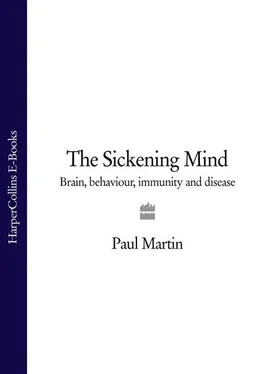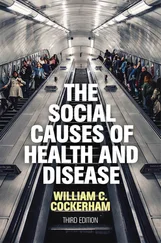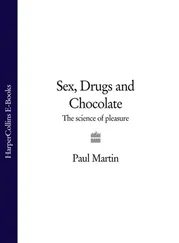So long as Colin shut himself up in his room and thought only of his fears and weakness and his detestation of people who looked at him and reflected hourly on humps and early death, he was a hysterical, half-crazy little hypochondriac who knew nothing of the sunshine and the spring, and also did not know that he could get well and stand upon his feet if he tried to do it. When new, beautiful thoughts began to push out the old, hideous ones, life began to come back to him, his blood ran healthily through his veins and strength poured into him like a flood.
With the help of cousin Mary, her rosy-cheeked proletarian chum Dickon and, of course, the Secret Garden, Colin is soon transformed into a ‘laughable, loveable, healthy young human thing’ who announces to the world that he is going to ‘live for ever and ever and ever’.
A more delicate literary example of an indeterminate illness born of circumstance can be found in Tolstoy’s Anna Karenin . Young Kitty Shcherbatsky declines an offer of marriage from the worthy but unworldly Levin, expecting instead to receive a proposal from the dashing Count Vronsky. When Vronsky’s anticipated proposal fails to materialize, Kitty, like a good nineteenth-century heroine, goes into a severe physical and mental decline which lasts for months. It is serious stuff and everyone is worried about the poor girl’s health. Kitty’s family doctor discusses her condition with a celebrated specialist whose help has been enlisted by the worried family:
‘But of course you know that in these cases there is always some hidden moral and emotional factor’, the family physician allowed himself to remark with a faint smile.
‘Yes, that goes without saying’, replied the celebrated specialist …
Kitty’s family and friends are worried even though they are well aware that her condition has essentially psychological origins. Kitty is described as ‘ill for love of a man who had slighted her.’ Kitty’s health does not improve and it is feared that she might actually die. Her anxious parents therefore take her on a foreign tour, where she encounters another young lady whose illness is also ‘due to a love affair’. The passage of time and the distractions offered by foreign travel eventually bring about Kitty’s recovery. Her illness and absence also allow circumstances to develop in her favour; she returns to Russia, marries the faithful Levin and (unlike the eponymous Anna) lives happily ever after.
Another way in which mental processes intrude into the domain of physical health is through the universal need for legitimacy. When we have decided that we are ill we want other people, and especially our doctor, to accept that we really are ill and not just malingering or being neurotic. Whether consciously or unconsciously, we want our putative disease to be accepted as genuine and not dismissed as a product of our fevered imagination. We need to legitimize our sickness by presenting the doctor with symptoms that will be accepted as evidence of a known organic disease. After all, no diagnosis means no treatment. As we saw in chapter 1, this can be a real problem for those suffering from poorly understood and controversial disorders such as chronic fatigue syndrome.
In his fascinating historical study From Paralysis to Fatigue , Edward Shorter has described how the physical symptoms that characterize so-called psychosomatic illnesses – those vague, undiagnosable ailments whose physical causes prove so elusive – have evolved over the years to keep pace with changing ideas about what constitutes a genuine disease. As society’s perceptions and beliefs about disease have changed, so the symptoms of psychosomatic illness have also changed to keep pace with what is regarded as legitimate evidence of disease. Thus, in the eighteenth and nineteenth centuries it was common for people to succumb to hysterical paralysis, convulsions or ‘fits of the vapours’. Paralysis of the legs was positively de rigueur among well-to-do young ladies of the nineteenth century. Nowadays, some would regard the symptoms of chronic fatigue and allergies as falling into the same category.
Shorter’s historical analysis is interesting in that it demonstrates the powerful effect social pressures and cultural norms can have on patterns of symptoms. Actual diseases are another matter, however. There is nothing imaginary or unreal about many cases of chronic fatigue syndrome, allergies or other supposedly fashionable illnesses.
Our expectations also have an important influence on our perception of health. In industrialized societies like Britain and the USA general expectations of health have risen considerably in recent decades and continue to rise. As in so many other spheres of human activity, a consumerist attitude towards health has become the norm. People demand more in terms of their physical and mental wellbeing and are less willing to tolerate minor health problems which detract from their quality of life. That elusive – and probably illusory – gold standard of total health is increasingly demanded as of right even though, to quote one expert, ‘deviance, clinically or epidemiologically defined, is normal’. This emphasis on positive health, as opposed to the mere absence of disease, is reflected in the explosion of interest in complementary or alternative medicine.
Huge advances in living conditions and medical knowledge have brought about large increases in life expectancy in many countries during the course of the twentieth century. Yet despite this we are apparently a sick bunch and getting sicker – if, that is, we define sickness in terms of perceptions and behaviour as opposed to objective measures of physical health. 1 Studies conducted in the USA in the late 1920s found an average of eight reported episodes of sickness for every ten people surveyed over a period of several months, whereas in the early 1980s the comparable figure was twenty-one sicknesses: an increase of 160 per cent. If we define sickness as seeking medical attention then the average person nowadays is ‘sick’ more than twice a year, compared with less than once a year in the 1920s. To be sick is normal.
Of course, what has increased over the decades is not the true incidence of diseases: it is our sensitivity to aches and pains; our tendency to ascribe them to physical diseases; our reluctance to put up with them; and our readiness to seek expert medical care.
Perish the thought, but just occasionally some of us have been known to concoct a tactical minor illness to get ourselves out of a predicament – perhaps as an excuse to avoid a dire social occasion or, less blatantly, to justify our poor performance in an exam, at work or in our personal relationships. Outright lying need not be involved. Gentle self-delusion is all that is needed. When sickness becomes an escape route from an unpleasant situation or embarrassment it is all too easy to convince ourselves that the symptoms are genuine. The ‘sore throat’ that conveniently gets the anxious child out of having to perform in the school concert can feel like a real sore throat.
Our minds, like Colin Craven’s, can exaggerate the severity and significance of symptoms, causing us unnecessary distress and wasting doctors’ time. But perceptions can shift in the opposite direction as well. An inert placebo ‘drug’ will often produce startling improvements in a patient’s symptoms – provided the patient believes it to be a real medicine and expects it to have a beneficial effect. (We shall be revisiting the placebo effect later; it is yet another example of why the mind cannot be divorced from bodily health, even when we are dealing with apparently straightforward physical diseases.)
We all have the capacity unconsciously to blot out things we find too uncomfortable or upsetting to think about. This psychological defence mechanism is known as denial. However, the mind’s ability to belittle or even ignore symptoms is something of a mixed blessing. Being excessively stoical or negligent about your own health is risky.
Читать дальше












